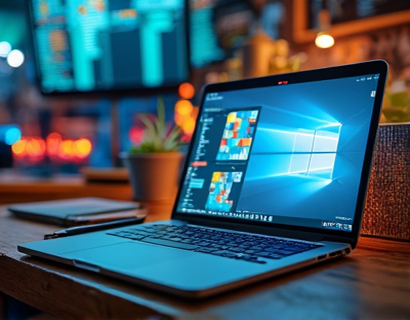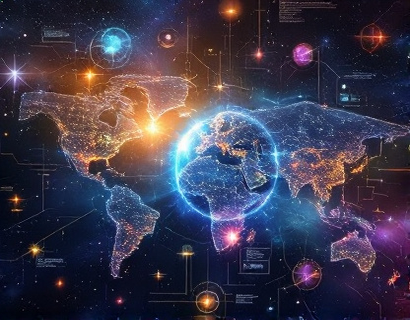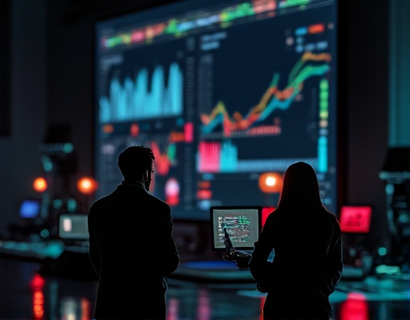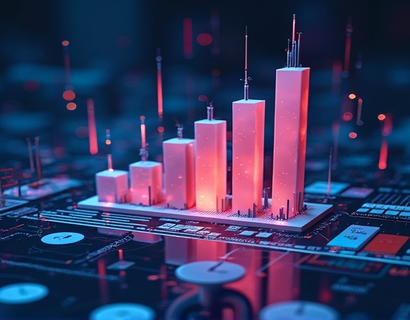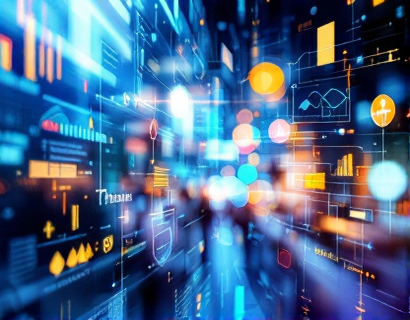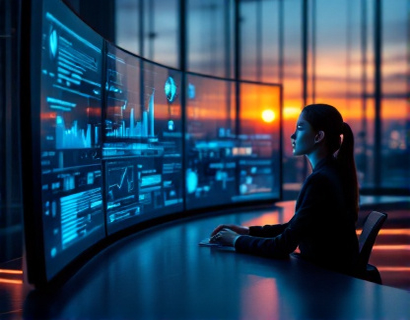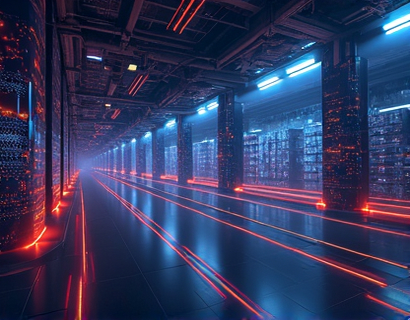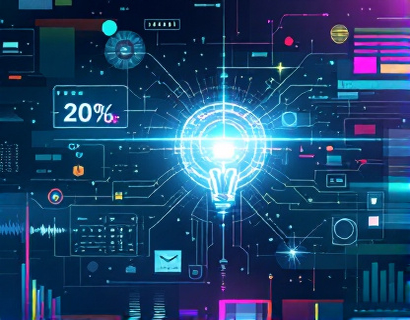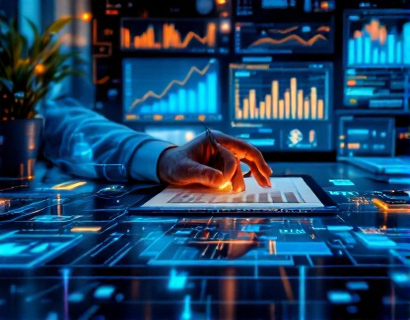Unleashing Next-Gen Digital Transformation: The Synergy of Crypto and AI in Ucosystems
The intersection of cryptocurrency and artificial intelligence (AI) is giving birth to a new era of digital transformation, fundamentally altering the landscape of tech ecosystems. This synergy is not just about combining two powerful technologies but about creating a holistic environment where connectivity, growth, and user satisfaction are paramount. As we delve into this topic, it's essential to understand how these technologies are reshaping the way we interact with digital platforms and services.
The concept of a tech ecosystem has evolved significantly over the years. Traditionally, it referred to a network of interconnected software applications and services that work together to provide a comprehensive solution. With the advent of blockchain and AI, this ecosystem has expanded to include decentralized networks, smart contracts, and intelligent algorithms that enhance the functionality and security of digital platforms. This evolution is driving innovation at an unprecedented pace, offering users more robust, secure, and personalized digital experiences.
Enhancing Connectivity through Blockchain and AI
One of the most significant impacts of the crypto-AI synergy is the enhancement of connectivity within tech ecosystems. Blockchain technology, with its decentralized and transparent nature, provides a robust foundation for secure and trustless interactions. AI, on the other hand, brings intelligence and automation to these interactions, making them more efficient and user-friendly.
For instance, in decentralized finance (DeFi) platforms, AI algorithms can analyze market trends and optimize trading strategies in real-time. These algorithms run on blockchain networks, ensuring that transactions are secure and immutable. This combination not only improves the speed and accuracy of financial operations but also reduces the risk of fraud and manipulation. Users benefit from a more seamless and reliable financial experience, which is crucial for the widespread adoption of blockchain-based services.
Moreover, AI-driven analytics can process vast amounts of data from blockchain networks to provide insights that were previously unattainable. This data can be used to improve network performance, detect anomalies, and enhance user experience. For example, AI can identify patterns in transaction data to predict and prevent potential bottlenecks, ensuring that the ecosystem remains fluid and responsive.
Driving Innovation through Smart Contracts and Machine Learning
Smart contracts, a cornerstone of blockchain technology, are being augmented by AI to create more sophisticated and autonomous systems. Traditional smart contracts are pre-programmed to execute specific actions when certain conditions are met. However, by integrating AI, these contracts can adapt to dynamic environments and make more informed decisions.
Consider a supply chain management system powered by blockchain and AI. Smart contracts can automate the tracking and verification of goods as they move through the supply chain. AI algorithms can analyze real-time data from sensors and other sources to optimize routes, predict delays, and ensure compliance with regulatory requirements. This integration not only streamlines operations but also enhances transparency and accountability, which are critical for building trust in the ecosystem.
In the realm of content creation and distribution, AI-powered content generation combined with blockchain's decentralized storage solutions can revolutionize how media is produced and consumed. AI can create high-quality content, from articles to videos, tailored to user preferences. Blockchain ensures that content creators are fairly compensated through tokenized rewards, creating a sustainable ecosystem where both creators and consumers benefit.
Personalization and User Satisfaction
Personalization is a key driver of user satisfaction in the digital age. AI algorithms excel at analyzing user behavior and preferences to deliver tailored experiences. When combined with the transparency and security of blockchain, this personalization can be taken to new heights.
For example, a streaming service can use AI to curate a personalized playlist based on a user's listening history and preferences. Blockchain can ensure that the user's data is securely stored and managed, giving them control over their information. Token-based incentives can further encourage users to provide feedback and engage more deeply with the platform, creating a virtuous cycle of improvement and satisfaction.
In the context of social media, AI can help filter and prioritize content based on user interests, while blockchain can ensure that user-generated content is protected and monetized fairly. This not only enhances the user experience but also fosters a more inclusive and rewarding community.
Security and Trust in Decentralized Ecosystems
Security and trust are paramount in any tech ecosystem, and the combination of crypto and AI offers robust solutions to these challenges. Blockchain's inherent security features, such as cryptographic hashing and consensus mechanisms, provide a solid foundation for protecting data and transactions. AI enhances this security by detecting and mitigating threats in real-time.
AI-powered security systems can monitor network activity for unusual patterns that may indicate a cyberattack. These systems can automatically trigger defensive measures, such as isolating compromised nodes or adjusting security protocols. This proactive approach to security is essential for maintaining the integrity of decentralized ecosystems.
Moreover, AI can help in compliance and regulatory adherence by analyzing complex legal frameworks and ensuring that the ecosystem operates within the bounds of the law. This is particularly important as regulations around crypto and AI continue to evolve, ensuring that the ecosystem remains compliant and trustworthy.
Challenges and Future Prospects
Despite the numerous benefits, the integration of crypto and AI in tech ecosystems is not without challenges. One of the primary concerns is the scalability of blockchain networks. As the number of transactions increases, the network can become congested, leading to slower processing times and higher fees. AI can play a role in optimizing blockchain performance by predicting and managing network load, but significant advancements are still needed.
Another challenge is the regulatory landscape. The decentralized nature of blockchain and the complex algorithms of AI can make it difficult for regulators to oversee these ecosystems effectively. However, as the technology matures and more use cases emerge, there is a growing recognition of the need for balanced and forward-thinking regulations that foster innovation while protecting users.
Looking ahead, the potential for crypto and AI to drive digital transformation is immense. The convergence of these technologies will likely lead to the development of new paradigms in computing, such as decentralized AI markets where AI models can be bought, sold, and shared securely and transparently. This could democratize access to advanced AI capabilities, enabling smaller organizations and individuals to leverage cutting-edge technology without the need for substantial resources.
Furthermore, the integration of AI with other emerging technologies, such as the Internet of Things (IoT) and 5G, will create even more interconnected and intelligent ecosystems. The synergy between crypto, AI, and these technologies will pave the way for a future where digital experiences are not only seamless and secure but also deeply personalized and empowering.
In conclusion, the combination of cryptocurrency and artificial intelligence is revolutionizing tech ecosystems, enhancing connectivity, driving innovation, and improving user satisfaction. As these technologies continue to evolve, they will play a pivotal role in shaping the digital landscape of the future, offering unprecedented opportunities for growth and transformation.







